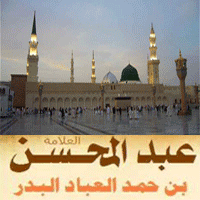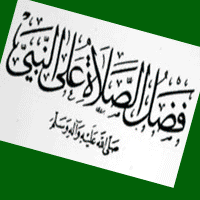His Rights
The folks of Sheba were one of the oldest nations of the pure Arabs, who lived in Yemen.
Excavations at “Or” brought to light their existence twenty five centuries B.C. Their civilization
flourished, and their domain spread eleven centuries B.C.
It is possible to divide their ages according to the following estimation:
1. The centuries before 650 B.C., during which their kings were called “Makrib Sheba”. Their
capital was “Sarwah”, also known as “Khriba”, whose ruins lie in a spot, a day’s walk from
Ever since Korosh the Great (557-529 B.C.) united the Persians, they ruled Iraq and its
neighbourhood. Nobody could shake off their authority until Alexander the Great vanquished their
king Dara I and thus subdued the Persians in 326 B.C. Persian lands were thenceforth divided and
ruled by kings known as “the Kings of Sects”, an era which lasted until 230 A.D. Meanwhile, the
Qahtanians occupied some Iraqi territories, and were later followed by some ‘Adnanians who
managed to share some parts of Mesopotamia with them.
No sooner did Kisra Anu Shairwan succeed Qabaz than he, due to hatred of Mazdak’s philosophy,
killed Mazdak and many of his followers, restored Munzir to the throne of Heerah and gave orders to
summon under arrest Harith who sought refuge with Al-Kalb tribe where he spent the rest of his life.
Sons of Al-Munzir bin Ma’ As-Sama’ maintained kingship a long time until An-Nu‘man bin Al-Munzir
took over. Because of a calumny borne by Zaid bin ‘Adi Al-‘Abbadi, the Persian king got angry with
In the process of the tribal emigrations, some septs of Quda‘a reached the borders of Syria where
they settled down. They belonged to the family of Sulaih bin Halwan, of whose offspring were the
sons of Duj‘am bin Sulaih known as Ad-Duja‘ima. Such septs of Quda‘a were used by the
Byzantines
in the defence of the Byzantine borders against both Arab Bedouin raiders and the Persians, and
enjoyed autonomy for a considerable phase of time which is said to have lasted for the whole
Ishmael (Peace be upon him) administered authority over Makkah as well as custodianship of the
Holy Sanctuary throughout his lifetime. Upon his death, at the age of 137, two of his sons, Nabet
and Qidar, succeeded him. Later on, their maternal grandfather, Mudad bin ‘Amr Al-Jurhumi took
over, thus transferring rulership over Makkah to the tribe of Jurhum, preserving a venerable
position, though very little authority for Ishmael’s sons due to their father’s exploits in building the
‘Amr bin Al-Harith bin Mudad Al-Jurhumi was reported by Ibn Ishaq, the wellknown
historian, to have buried the two gold deer together with the Black Stone as well as a lot of
jewelry and swords in Zamzam, prior to their sorrowful escape to Yemen.
Ishmael’s epoch is estimated to have lasted for twenty centuries B.C., which means that Jurhum
stayed in Makkah for twenty-one centuries and held rulership there for about twenty centuries.
Upon defeat of Jurhum, the tribe of Khuza‘a monopolized rulership over Makkah. Mudar tribes,
The First: Having noticed the spread of his offspring, increase of his property and exalt of
his honour after Halil’s death, Qusai found himself more entitled to shoulder responsibility of
rulership over Makkah and custodianship of the Sacred House than the tribes of Khuza‘a and
Bani Bakr. He also advocated that Quraish were the chiefs of Ishmael’s descendants.
Therefore he consulted some men from Quraish and Kinana concerning his desire to
evacuate Khuza‘a and Bani Bakr from Makkah. They took a liking to his opinion and
supported him.
14
The sons of ‘Abd
Munaf, however, cast the lot for their charge, and consequently left the charge of food and water
giving to Hashim bin ‘Abd Munaf, upon whose death, the charge was taken over by a brother of his
called Al-Muttalib bin ‘Abd Manaf and afterwards by ‘Abd Al-Muttalib bin Hashim, the Prophet’s
grandfather, whose sons assumed this position until the rise of Islam, during which ‘Abbas bin
‘Abdul-Muttalib was in charge.
Many other posts were distriamong people of Quraish for establishing the pillars of a new democratic
1. Presiding over An-Nadwa House meetings where consultations relating to serious issues
were conducted, and marriage contracts were announced.
2. The Standard: He monopolized in his hand issues relevant to war launching.
3. Doorkeeping of Al-Ka‘bah: He was the only one eligible to open its gate, and was
responsible for its service and protection.
4. Providing water for the Pilgrims: This means that he used to fill basins sweetened by dates
and raisins for the pilgrims to drink.
We have previously mentioned the Qahtanide and ‘Adnanide emigrations, and division of Arabia
between these two tribes. Those tribes dwelling near Heerah were subordinate to the Arabian king
of Heerah, while those dwelling in the Syrian semi-desert were under domain of the Arabian
Ghassanide king, a sort of dependency that was in reality formal rather than actual. However, those
living in the hinder deserts enjoyed full autonomy.
These tribes in fact had heads chosen by the whole tribe which was a demi-government based on


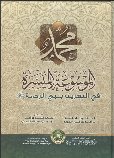
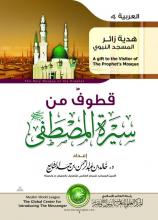
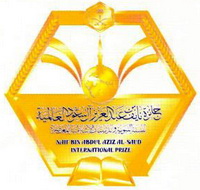

.jpg)
